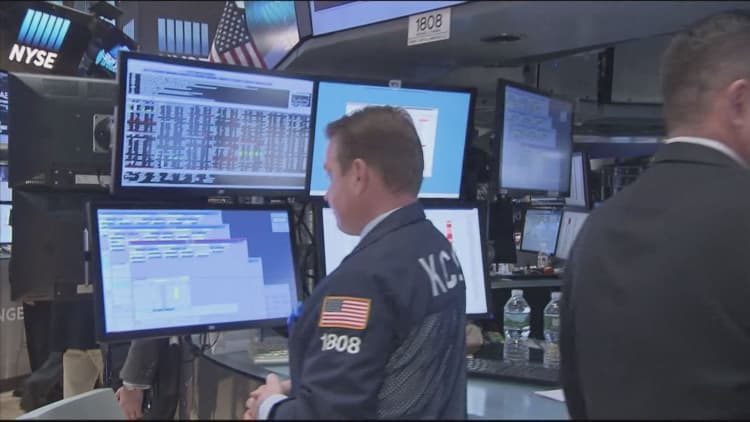
Since the financial crisis, the economy has never been called robust, but it may be in the longest expansion on record, with a couple more years to go.
Goldman Sachs economists said, in a recent note, that their model shows an increased 31 percent chance for a U.S. recession in the next nine quarters. That number is rising. But it's a good news, bad news story, and the good news is there is now a two-thirds chance that the recovery will be the longest on record.
"The likelihood that the expansion will break the prior record is consistent with our long-standing view that the combination of a deep recession and an initially slow recovery has set us up for an unusually long cycle," they wrote.
The current expansion has already lasted 95 months, now the third-longest in U.S. history in 33 business cycles going back to 1854, the economists said.
"Only the expansions from March 1991 to March 2001 [120 months] and from February 1961 to December 1969 [106 months] were longer," they wrote.
The Goldman economists also say the medium-term risk of a recession is rising, "mainly because the economy is at full employment and still growing above trend." They define a recession as a quarter of negative growth.
"The most obvious way to keep risk from rising much further would be a slowdown of output and employment growth to a trend pace before too long," the economists wrote. This would require more Federal Reserve tightening than is currently priced in the bond market, they wrote.
April's strong jobs report last Friday provided some comfort that U.S. economic growth isn't flatlining, after a stream of economic data that fell below expectations. U.S. GDP grew at just 0.7 percent in the first quarter, and economists expect second-quarter GDP to be as much as 3 percent or even more.
While many economists were encouraged by the 211,000 jobs created last month and 4.4 percent unemployment rate, the Goldman economists, in a separate note, wrote that they see the potential for the labor market to overheat.
The economists say their model says "that recession risk at the 1, 5, and 9-quarter horizon is well explained by lagged GDP growth, the slope of the yield curve, equity price changes, house price changes, the output gap, the private debt/GDP ratio, and economic policy uncertainty."


